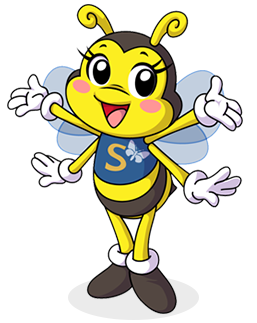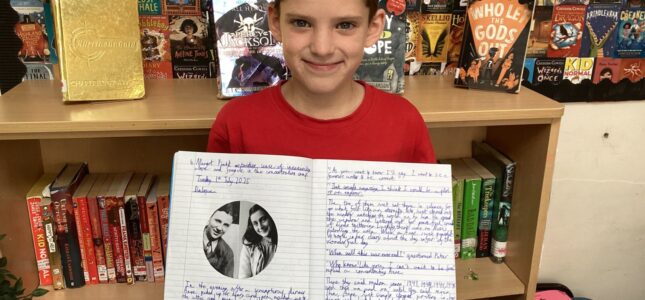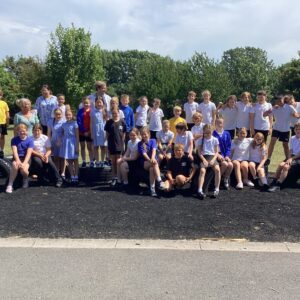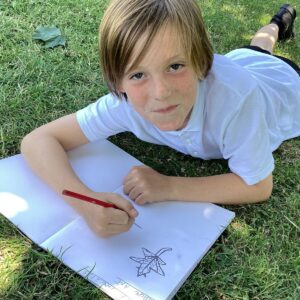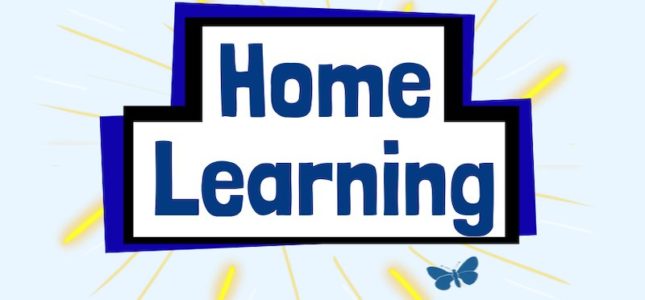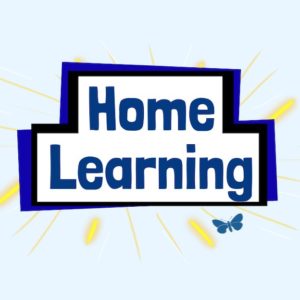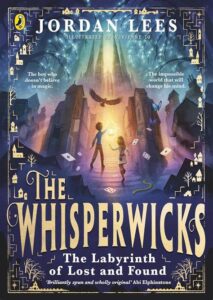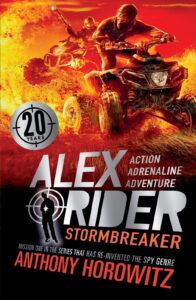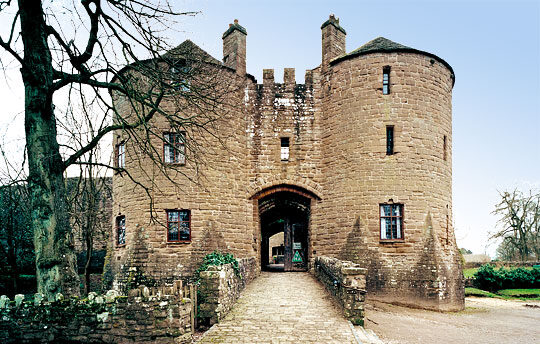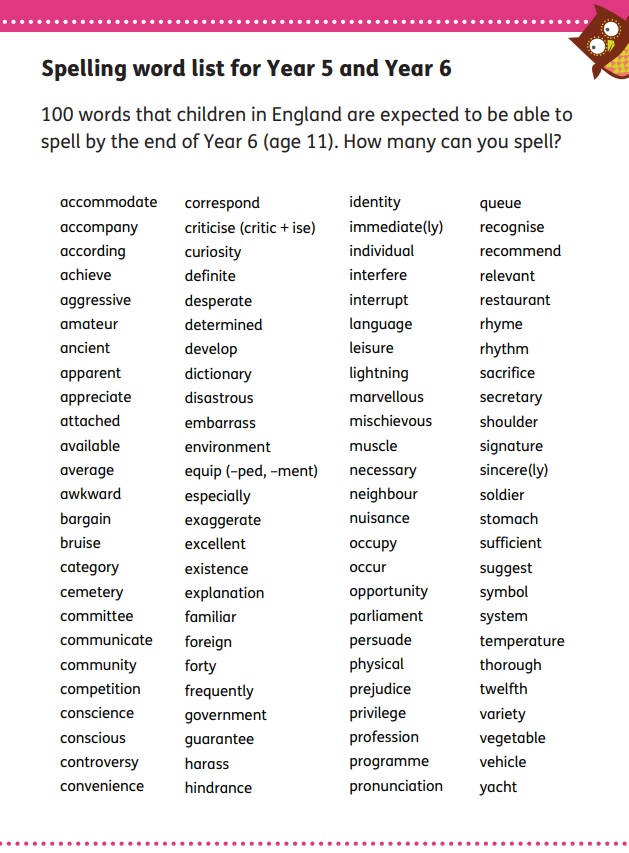Summer Term
2025
Year 5
Welcome to the Year 5 home page. Here you will find all of the key information about what the children are getting up to this term. The door for Year 5 will be opened at 8:45am and will close at 8.55am for registration. Please ensure children arrive on time to ensure that they can settle into the school day successfully.
Reading
We adopt a reading approach called ‘Booktalk’. During these sessions, teachers ensure a language rich environment discussing themes and vocabulary in the class readers and ensuring ‘working walls’ reflect new knowledge and vocabulary. This has a direct impact on pupil’s writing. This term, our class novels are The Whisperwicks by Jordan Lees and Alex Rider Stormbreaker by Anthony Horowitz. Reading continues to be an important part of the day. Please ensure that your child reads at home daily and that this is recorded in their reading record. Your child’s reading book and reading record need to be sent into school daily to enable us to read at school, change books and monitor your child’s reading progress. A mixture of them reading to an adult as well as reading independently is encouraged in order for children to develop their fluency and comprehension. Our library day has now moved to Monday.
Writing
In our writing this year, we are adopting book-based writing units that are based on a wide range of high quality and significant children’s literature chosen to engage, challenge and support children to be critical readers and confident and informed writers. All National Curriculum requirements of grammar, spelling, vocabulary, literary language and composition are embedded leading towards a variety of purposeful and exciting shorter, longer and extended writing outcomes where the audience and purpose is clear.
Our books this term are:
Kaspar, Prince of Cats by Michael Morpurgo
Anne Frank by Josephine Poole
The Strange Case of Origami Yoda by Tom Angleberger
Percy Jackson by Rick Riordan
Maths
We follow the White Rose Education scheme of learning that inspires maths to really focus on the ‘WHY?’ rather than the ‘HOW?’ in maths. We support our learners more thoroughly using the Concrete Pictorial Abstract approaches, but also extend through reasoning and problem-solving questions and Maths Journaling that flow throughout the whole scheme. This term, we are covering units on:
- Shape
- Position and Direction
- Decimals
- Negative Numbers
- Converting Units
- Volume
Alongside this, we will continue to support children in developing their arithmetic skills. TT Rockstars is a fantastic resource that the children have access to at home and will support them with all mathematical learning in school.
Science
Properties and changes of materials. During this unit of work, children will consolidate previous learning by revisiting the properties of solids, liquids and gases; learn to describe the properties of materials using scientific language; investigate which materials make the best thermal insulators; and which materials are magnetic. Children will be introduced to key scientific vocabulary to describe the properties of materials (e.g. soluble and insoluble) and investigate how to separate materials using these properties. They will be able to name separation methods (filtering, sieving, evaporation, magnets) and decide on the most efficient method for separating a mixture of materials
Art
How can flowers inspire artists?
In this clay sculpture unit, children will build on their knowledge and skills of sculpture and clay that they have studied through LKS2 and KS1. They will learn from great artists and evaluate and analyse creative works using the language of art. Children will produce their own creative work, exploring their ideas and recording their experiences. They will begin to demonstrate proficiency in sculpture techniques.
Computing and Music
I’m delighted to share some exciting news from the Dorset Music Service! This term, our Year 5 students will be taking part in a contemporary music project, exploring finger drumming using the Yamaha FGDP-30 Finger Drumming Instrument.
Artists like Fred Again use this innovative piece of equipment, and I have no doubt that, after their fantastic work with Mr. Keys last year, our students will rise to the challenge. With creativity and enthusiasm, they’ll be composing some incredible music using this cutting-edge technology.
Geography
The United States In this unit, children will recap the key human and physical features of their region in England. Children will discover the different countries and capital cities of North America and then focus on specifically the Western United States. Children will learn the human and physical features of the Western United States including biomes, climate zones, vegetation belts, earthquakes and volcanoes. Children will learn about the physical processes of rivers, mountains and the water cycle and apply this to their region and the Western United States.
Science
Properties and changes of materials. During this unit of work, children will consolidate previous learning by revisiting the properties of solids, liquids and gases; learn to describe the properties of materials using scientific language; investigate which materials make the best thermal insulators; and which materials are magnetic. Children will be introduced to key scientific vocabulary to describe the properties of materials (e.g. soluble and insoluble) and investigate how to separate materials using these properties. They will be able to name separation methods (filtering, sieving, evaporation, magnets) and decide on the most efficient method for separating a mixture of materials
History
Ancient Maya Civilisations: As historians, the children will be learning about the Ancient Maya Civilisation. The first lessons explore who the Maya people were, when and where in the world they lived and the reasons why they were so successful, particularly in the Classic period. The lessons then move on to discovering how we know about the Maya people, their beliefs and the hierarchy system that was in place in society and the important inventions that they made, especially in farming. The unit finishes with a comparison between the Ancient Maya Civilisation and AngloSaxon Britain, with a focus on the similarities and differences between the Maya City States and the Anglo-Saxon Kingdoms; drawing on the archaeological evidence available to us.
Physical Education
In PE this term, we will be focusing on rounders, athletics and basketball.
In rounders, the children will be developing their hand-eye coordination, throwing and catching, batting and fielding skills. The children will also develop their skills and prowess in track and field events in preparation for our Sports Day. In basketball, the children will learn to defend, attack, shoot, dribble and intercept.
We will also ensure that pupils understand the importance of fair play and honesty while self-managing games and learning and abiding by key rules, as well as evaluating their own and others’ performances.
Please ensure your child comes to school wearing their PE kit every Thursday .
Modern Foreign Languages
Travel around the WORLD: In French, the children will learn the names of transports and continents in French. They will name and locate continents, countries and a few cities. They will recognise flags and will also learn to say how they travel to countries/continents on holidays.
PSHE
During our PSHE sessions this year, we are using a new resource called VotesforSchools which is a weekly current affairs-based voting platform designed to engage children & young people in age-appropriate political and social issues. Through weekly discussion and voting, not only are voters learning about the world around them, but they are also becoming active citizens and preparing to participate in democratic processes. Through our lessons, called VoteTopics, voters can participate in open, informed and balanced discussions about live issues and the impact these may have on them and their communities. Then, they decide where they stand on each issue and their reasons why. Their vote results and comments are passed on to figures and organisations of influence, who in turn provide feedback and insight on how their voices are making a difference to policy, attitudes, and awareness. This allows voters to feel empowered to speak out and that their voices are being heard.
Enrichment
To kick start the summer term with a bang, you are invited to come and watch our poetry performance at Weymouth Pavilion. The performance is on Wednesday 30th April. Children will need to be dropped down to Weymouth Pavilion at 8.30am ready for a 9.00am start. There’s no need to book tickets, just turn up and enjoy the show! The children will then have a nice walk in the sunshine (hopefully) back to school after the event.
I am delighted to announce that the summer term means only one thing…our residential to St Briavels Castle!! It looks phenomenal. You should have received the kit list already and the itinerary and other important information will be sent out soon.
- St Briavels
It is also Year 5’s sports day on Thursday 26th June. Children will be practising the events in the build up to the day and they will then sign up to the sporting challenges they feel confident in to try and win points for their respective house teams.
Home Learning
We ask the children read every day and write this in their reading record books. Children are also expected to log onto TT Rockstars in order to develop their times table fluency. Below are also the Year 5/6 statutory spellings that the children are learning to spell in class. If however you wish to also support your child in learning these at home, I have attached the spelling list for you to use:
If you have any questions or queries, please do not hesitate to email me at:
t.prior@southill.dorset.sch.uk
Tom
